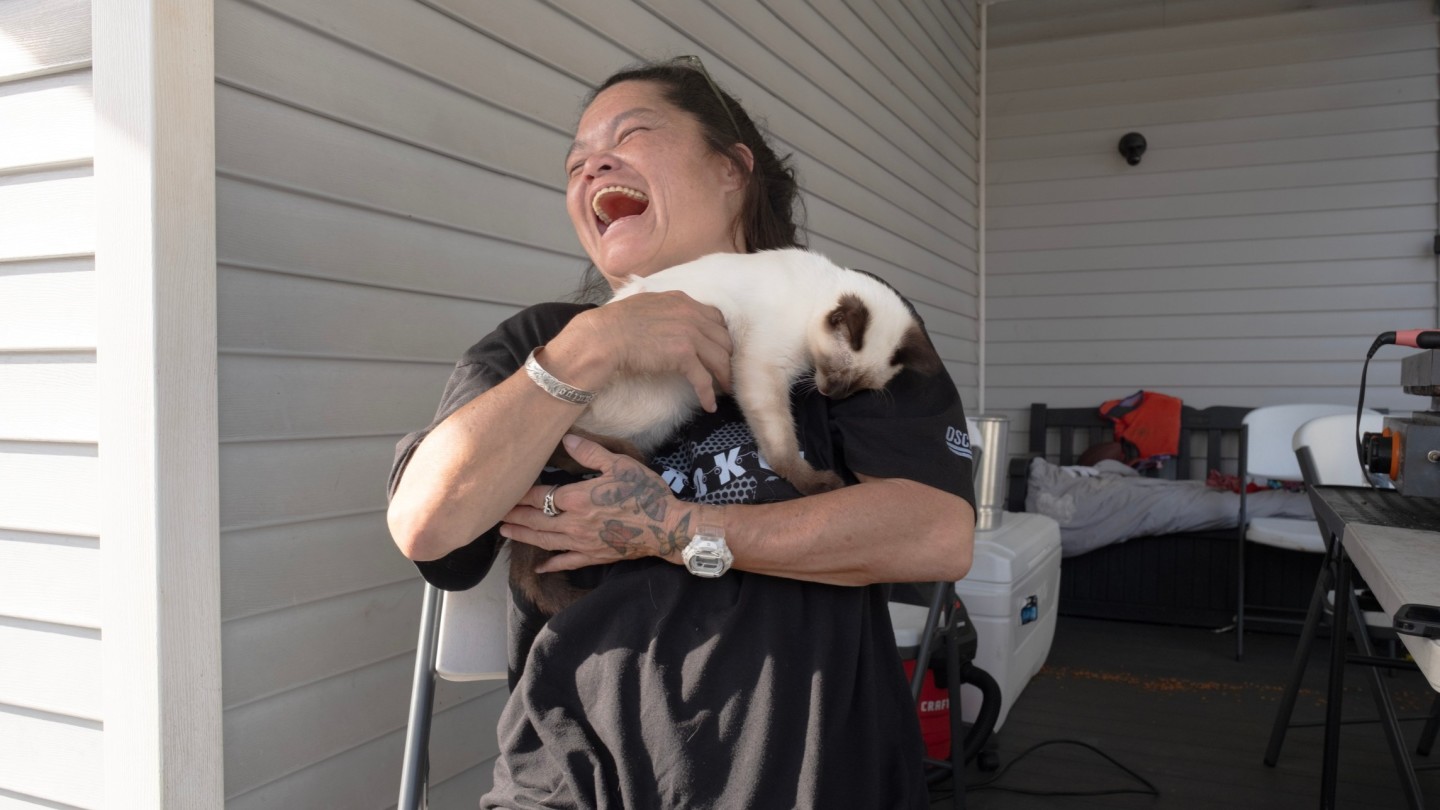- Donald Trump repeated unfounded claims that Haitian immigrants in Springfield, Ohio, were eating pets, sparking national attention and local unrest (Cnn.com).
- Springfield officials and community leaders debunked the claims, noting there was no credible evidence of such incidents (Newsweek.com).
- The rumor originated from a local Facebook post, which the poster later regretted and clarified as having no direct evidence (Nbcnews.com).
- The claims of pet-eating have led to bomb threats, school closures, and increased fear within both the Haitian and local communities (Bbc.com).
- Neo-Nazi groups have also used the situation to promote anti-immigrant sentiments in Springfield, escalating tensions further (Theguardian.com).
This perspective views the influx of Haitian immigrants into Springfield, Ohio, as a significant strain on local resources, leading to housing, healthcare, and social service challenges. Locals feel unprepared for the sudden demographic shift, which has contributed to rising tensions and resentment. False rumors, such as the one about immigrants eating pets, are seen as a symptom of the larger fear and mistrust some residents harbor toward newcomers, exacerbated by political rhetoric. The focus here is on how rapid immigration can create friction in small communities struggling to adapt.
From this perspective, the events in Springfield are seen as the result of deliberate misinformation spread by political leaders to stoke anti-immigrant sentiments. Trump's amplification of unsubstantiated claims about immigrants eating pets is viewed as an attempt to distract from real issues and exploit fear for political gain. The Haitian community, many of whom are in the U.S. legally, is unfairly scapegoated, with these baseless accusations resulting in increased hostility and threats against them. This view highlights how misinformation can escalate into real harm when used irresponsibly by politicians.
This perspective emphasizes the positive role that Haitian immigrants have played in reviving Springfield's economy, particularly in industries like agriculture and manufacturing. Despite challenges such as housing shortages and cultural differences, the Haitian population is seen as hardworking and eager to integrate. The claims about pet-eating are dismissed as a baseless, harmful stereotype that ignores the actual contributions of immigrants. This viewpoint argues for a more balanced and humane approach to immigration, focusing on the benefits rather than sowing division through fear and falsehoods.
Details
Security
Bias
Deltas
In recent weeks, Springfield, Ohio, has become the center of a national controversy sparked by unverified claims about Haitian immigrants allegedly eating pets. These claims gained widespread attention after former President Donald Trump, during a televised debate, repeated the accusations, which originated from a local Facebook post by a Springfield resident. The woman who made the post, Erika Lee, later expressed regret, acknowledging that she had no direct evidence to support the claim and that it had spiraled out of control, leading to significant media attention and public unrest (Newsweek.com). Despite the lack of evidence, Trump's repetition of the claim in subsequent speeches and public appearances helped solidify it in the public discourse (Cnn.com).
Local officials in Springfield, including the mayor and police department, have debunked these claims, emphasizing that no credible reports or evidence support the allegations that immigrants have been harming pets (Theguardian.com). Nevertheless, the rumor spread quickly, fueled by right-wing social media and far-right extremist groups. For example, the neo-Nazi group Blood Tribe reportedly used the situation to promote anti-immigrant rhetoric, which has increased tensions in Springfield, particularly toward the town's 15,000 Haitian immigrants (Bbc.com). This atmosphere of suspicion and fear culminated in bomb threats against schools and city buildings, forcing evacuations and creating a palpable sense of unrest within the community (Nbcnews.com).
The controversy did not stop at local politics; it quickly became a national issue due to the involvement of political figures like Trump and his running mate, Ohio Senator JD Vance. Vance has been vocal about the situation, framing the Haitian immigrant population in Springfield as part of a broader crisis of illegal immigration, although many of these immigrants are in the U.S. legally under Temporary Protected Status (TPS). Vance, along with other Republicans, has used the debunked pet-eating rumors to draw attention to what they describe as a failure of border security and immigration policies, further inflaming anti-immigrant sentiments in the town (Cnn.com).
Local leaders, such as Springfield Mayor Rob Rue, have called for calm and urged national figures to consider the impact of their words on small communities like Springfield, which are grappling with real issues related to rapid population growth and resource strain (Newsweek.com). Haitian immigrants have been contributing significantly to the local economy, working in industries such as agriculture and manufacturing, and many view the claims as part of a broader narrative designed to stoke racial and cultural tensions. Some community leaders have pointed out that Springfield has struggled to accommodate the sudden influx of new residents, leading to pressure on housing, schools, and healthcare systems (Theguardian.com).
Meanwhile, advocacy groups and immigration reform advocates have condemned the rumors as dangerous, warning that such rhetoric could lead to violence against immigrants. They highlight the importance of combating misinformation and protecting vulnerable communities from being scapegoated for broader societal challenges (Nbcnews.com). As the debate over immigration intensifies in the run-up to the 2024 presidential election, Springfield remains a flashpoint, symbolizing the broader national divisions over immigration policy and the role of rhetoric in shaping public perceptions (Bbc.com).
Negative
Sentiment
Neutral
Sentiment
Positive
Sentiment


